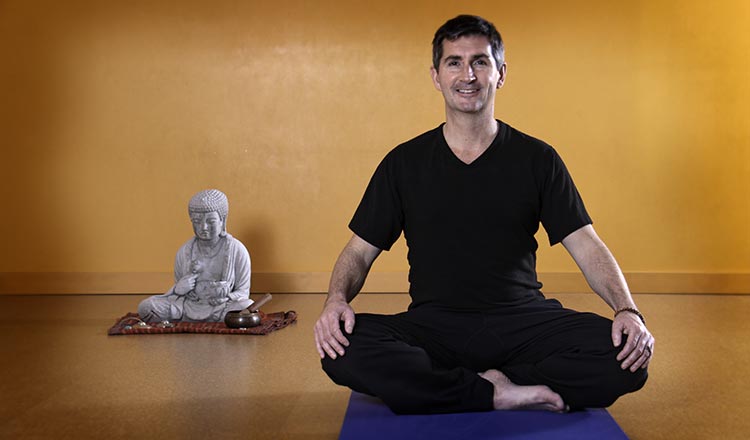Sivananda Bahamas Blog
Expand Your Horizons …
Our Blog
Reconsidering Pain with Neil Pearson
Presenter Spotlight
What do you do?
I help people in pain through an integration of pain science, physiotherapy and therapeutic yoga.
Why?
- It is time for a shift in our paradigm of pain, people in it, and the care of pain to one of optimism and integration of body-mind-spirit.
- Some people in pain have shown us the path towards creating less pain, better ease of movement, and enhanced quality of their lives.
What fascinates you right now?
The recent rapid growth in interest of providing yoga for people in pain, from both the medical world and from yoga practitioners, combined with many people taking the time to think about what they think about pain — rather than staying with harshly dualistic views of pain — and with many reconsidering how they approach movement in the face of persisting pain.
How did you come to your path?
My clinical path and yoga path intersected about 15 years ago when I realized that there was so much that I had learned that I could share with others, and that there were far too many gaps in education about pain in both pain medicine and therapeutic yoga. Over my 30 years of being a physical therapist, patients told me stories that I could not explain from a biomedical, biomechanical, or psychological perspective. I have always been curious about the complexity of pain, so I listened intently. The language of yoga provides us with integrated and compassionate vocabulary from which to consider pain. And now, scientists such as Lorimer Moseley are finding correlations between yoga philosophy and pain science that make discussing this path so much easier.
What are you reading?
A Natural History of the Senses by Diane Ackerman and Finding Inner Courage by Mark Nepo
What is one surprising thing for you about teaching at the Sivananda Ashram Yoga Retreat?
One of my key teachers, Marion McConnell, was a student at the ashram in the 70s. I could hear her voice last year, every time we sat to chant. And the chanting stayed with me for about two weeks after I left — a lasting sense of peacefulness came each time the music filled me.








